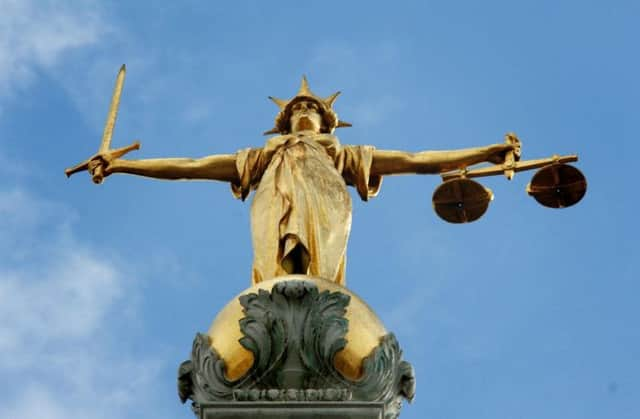Core of terror trial to be held in secret


Three judges found the course was justified in the “exceptional” case of Erol Incedal and Mounir Rarmoul-Bouhadjar, who are to face charges at the Old Bailey on 16 June.
Lord Justice Gross, sitting with Mr Justice Simon and Mr Justice Burnett, said: “The rule of law is a priceless asset of our country and a foundation of our constitution. One aspect of the rule of law is open justice, which includes criminal trials being held in public and the publication of the names of defendants.
Advertisement
Hide AdAdvertisement
Hide Ad“Open justice is both a fundamental principle of the common law and a means of ensuring public confidence in our legal system; exceptions are rare and must be justified on the facts.”
He said that considerations of national security, which was itself a national interest of the first importance and the raison d’etre of the security and intelligence agencies, would not by themselves justify a departure from the principle of open justice.
“Open justice must, however, give way to the yet more fundamental principle that the paramount object of the court is to do justice; accordingly, where there is a serious possibility that an insistence on open justice in the national security context would frustrate the administration of justice, for example, by deterring the Crown from prosecuting where it otherwise should do so, a departure from open justice may be justified.”
The judges were ruling on a challenge by media organisations against an “unprecedented” decision by Mr Justice Nicol that the trial should take place entirely in private with the identity of both defendants withheld and a permanent prohibition on reporting what took place during it and their identities.
They concluded that, while “as a matter of necessity”, the core of the trial must be heard in camera, the swearing-in of the jury, the reading of the charges, part of the judge’s introductory remarks, at least part of the prosecution opening, the verdicts and – if applicable – any sentencing would be in public.
They added that they were not persuaded there was a risk to justice warranting the withholding of the names of the defendants, who were previously known only as AB and CD.
Lord Justice Gross said: “We express grave concern as to the cumulative effects of holding a criminal trial in camera and anonymising the defendants.”
Incedal is charged with an offence contrary to section 5, Terrorism Act 2006 (preparation of terrorist acts) and an offence contrary to section 58, Terrorism Act 2000 (collection of information). Rarmoul-Bouhadjar is charged with an offence contrary to section 58, Terrorism Act 2000 and one contrary to section 4, Identity Documents Act 2010 (possession of false identity documents etc with improper intention).